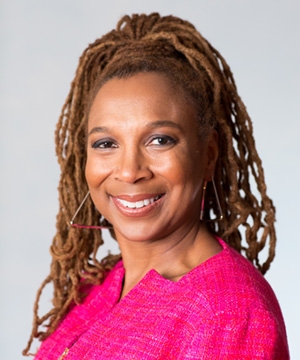
Most of us are familiar with liberation movements that center on some specific aspect of social identity: women’s rights, African American rights, LGBTQ+ rights, immigrants’ rights, etc. As identity politics continues to reassert itself in evolving and intriguing ways, the work of Kimberle Crenshaw is crucial. If her name isn’t familiar you still might have heard the term “intersectional” in social justice contexts. This is a term that Crenshaw coined and a concept that has generated legal, philosophical, and sociological fields of study.
According to some visions of social justice, our liberatory aims should be to empty the identity categories of social significance because they are the products of harmful differential frameworks. With regard to race, this coheres as a kind of “colorblind” ideology; with regard to gender or sexual orientation its the idea that these social categories are ultimately politically irrelevant. For advocates seeking a kind of universal justice platform, identity-focused politics are in tension with these broad goals. But for Crenshaw, the problem with identity politics is not that it fails to transcend difference, but that it frequently ignores intragroup differences. Some liberation movements undermine their own aims because, as she says, “Ignoring difference within groups contributes to tension among groups.”
Crenshaw’s work on exploring the nuances of social-material and political difference provides a robust alternative to totalizing liberation visions. Not only does it allow reporting of the specific harms of intersecting oppressive frameworks, but in doing so it allows for the possibility that delineating difference can be the source of social empowerment and reconstruction instead. And it does this by focusing on the group of individuals whose particular experiences tend to be most overlooked by both dominant feminist movements and movements for racial justice: black women. Crenshaw’s sociological studies explore the various ways in which race and gender intersect in shaping the structural, political, and representational aspects of violence against women of color. By detailing the kinds of legal and social services available, the kinds of reception their testimony receives, she details they ways that women of color’s location at the intersection of race and gender makes their lived experience of violence qualitatively different from that of white women. She calls this “structural intersectionality,” and describes that it is not just an additive idea– female + latina + immigrant, for example– but that a latina immigrant woman occupies a specific social location, and there is much to be learned from the “telling” of her experience. Crenshaw details how the experiences of women of color are frequently the product of intersecting patterns of sexism and racism, but these experiences tend not to be represented within the discourses of feminism or antiracism. Their intersectional identities are marginalized within both movements and their sometimes conflicting political agendas. For example, she explores the way that antiracist movements hesitate to foreground violence against women because of the way rape is used to legitimize efforts to control, police, and discipline black communities. And the exclusions of “white feminism” are well-documented, like the simple example of focusing on the ennui of the white middle class housewife in the 1970s, and ignoring the widespread domestic work of women of color. What Crenshaw importantly adds is a prism for understanding just how these “strategic silences” reveal the particular vulnerabilities of intersecting oppressions.
A sign from the 2017 Women’s March. Click here for the story.
Philosophically, Crenshaw’s work occupies an important space in contributing to our understanding of the way that knowledge production is political and how the politics of difference propel us toward a kind of radical intellectual democracy. Like other feminists, she prompts us to reconceive of identity itself in radically relational terms. And she provides an analytical tool for exploring the ways that oppressive structures interlock and support one another.
If you want to learn more about her work, take the time to watch the following videos. And if you occupy privileged social positions and are involved in social justice movements, do some reflective work with regard to whether and how your efforts marginalize others on the basis of intragroup difference.
This is a great 2 minute video that defines intersectionality and illustrates it by way of a simple example: https://www.youtube.com/watch?v=ViDtnfQ9FHc
Here is Kimberle Crenshaw’s 2016 TED talk: https://www.ted.com/talks/kimberle_crenshaw_the_urgency_of_intersectionality
